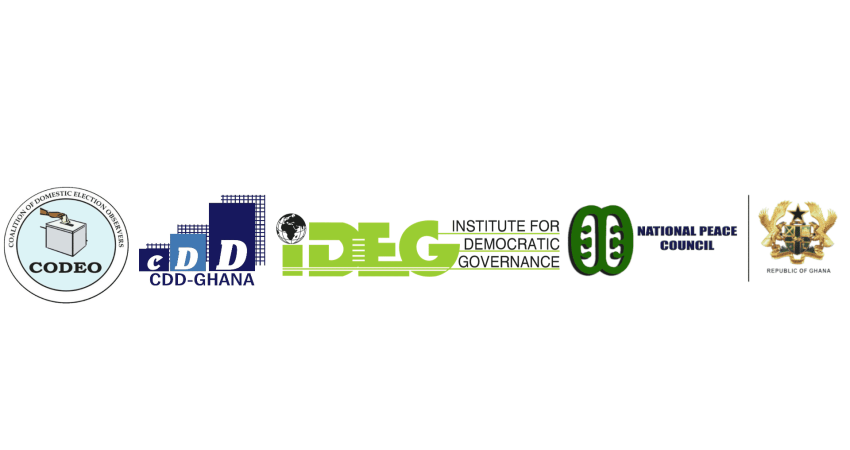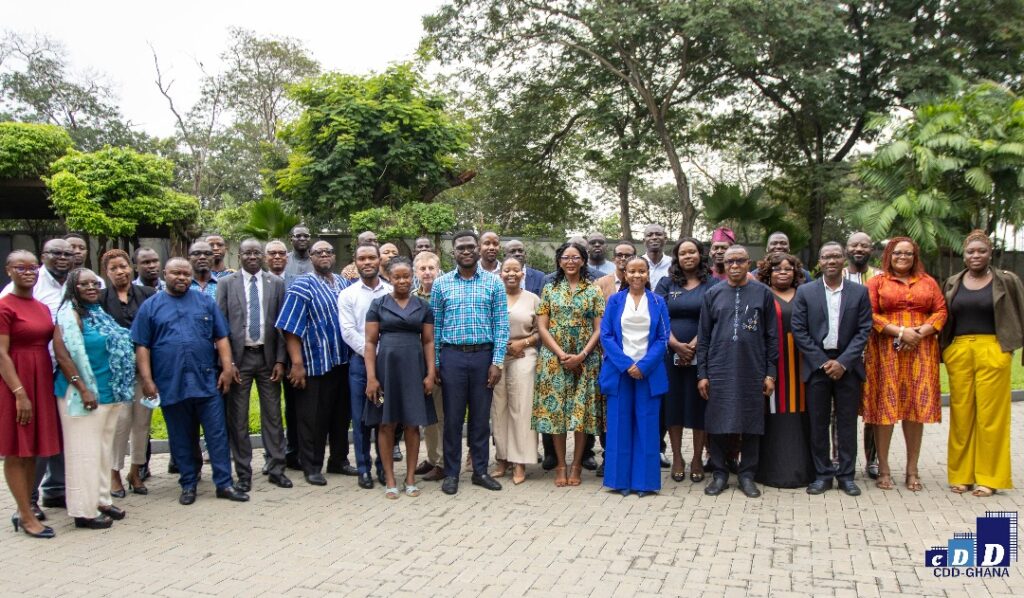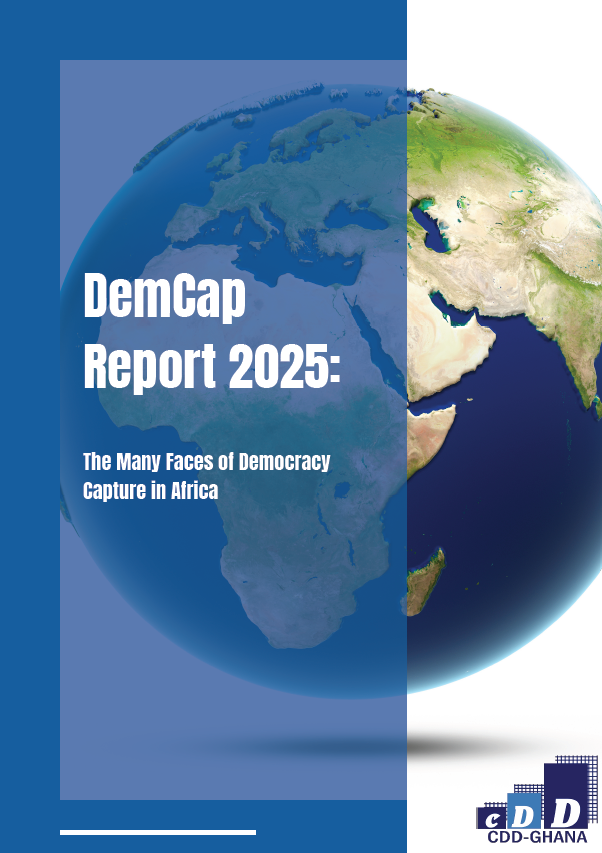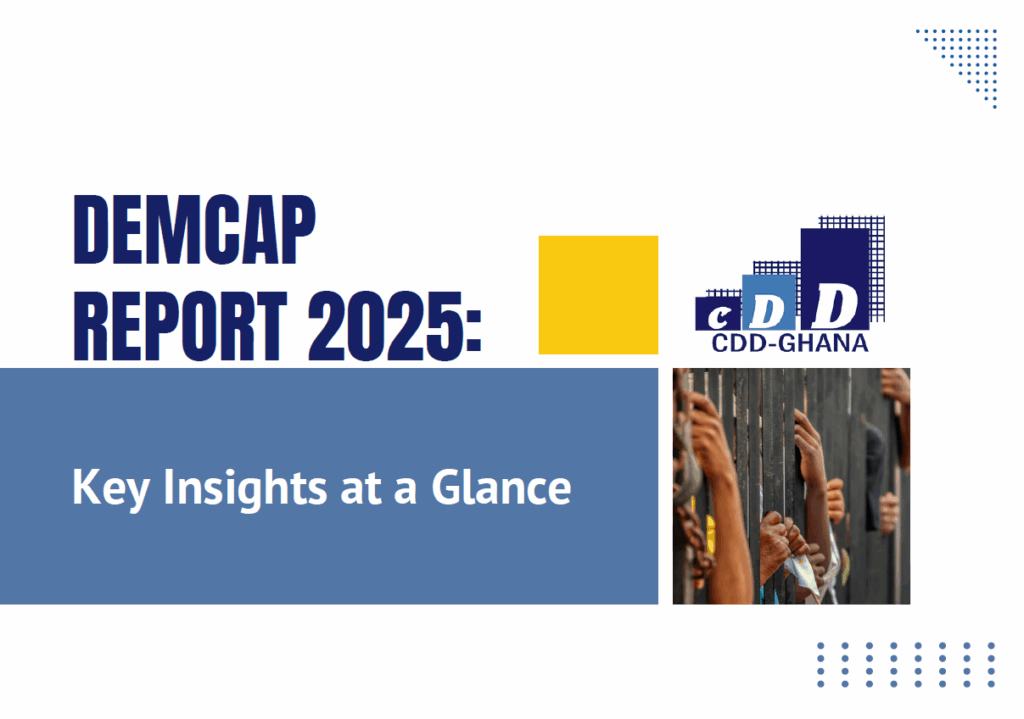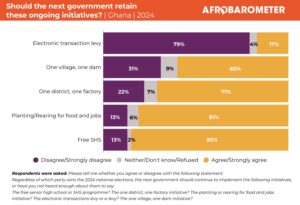ENDING ELECTORAL VIOLENCE IN GHANA
JOINT COMMUNIQUÉ
August 12, 2020
Introduction
The Ghana Center for Democratic Development (CDD-Ghana), in collaboration with the Coalition of Domestic Election Observers (CODEO), and the National Peace Council (NPC), Institute for Democratic Governance (IDEG), and the Civic Forum Initiative (CFI), and with support from the United States Agency for International Development (USAID), organized a roundtable discussion on Tuesday August 11, 2020 to brainstorm on how to secure a violent-free electoral and political environment in the 2020 elections and beyond.
Participants at the half-day event deliberated on the following topics:
- Violence around Ghana’s elections: A trend analysis from 2008 to 2016
- Violent incidents reported on the 2020 national voter registration exercise
- Dealing with violence around Ghana’s elections: The role of the Ghana Police service, and the challenges, if any, in enforcing the laws
- Prosecutions on elections related violence: Challenges and the way forward
- Adjudicating elections related violence: The laws, the challenges and the way forward
The following views were expressed during the deliberations:
- Activities of vigilante groups have taken a center stage in the county’s electoral processes
- The issue of political violence continues to be a worry and a threat to the peace in the country
- Ghana’s democracy is built on a fragile foundation because of violence
- There is a lot of fear and tension in the country during elections and those who have the means leave the country and return when the elections are over
- Although cases of electoral violence keep escalating at every election, the actions taken against offenders have not been unsatisfactory
- It is important to maintain peace in the country, especially during elections
- Ghanaians are witnesses to the havoc electoral violence has caused in other countries, and that should guide citizen behavior, conduct and utterances
With regards to the main subject of the event – “Let’s Crack the Whip: What Impedes the Effective Application of the Laws,” participants identified the following challenges:
- There were a limited number of designated special electoral courts during the 2016 elections
- There is laxity in the application of the laws against people who commit election-related crimes
- There seem to be lack of political will to enforce laws, especially, the Vigilantism and Related Offences Act, 2019 (Act 999). Section 10 of the Act 999 provides for the Minister of Justice and Attorney General to make Regulations by Legislative Instrument (LI) to enforce the Act. Though the Act being accented to by the Government on August 23, 2019, the LI has not been made 12 months on
- Section 42 of the Representation of the People Law, 1992 (PNDCL 284) is problematic, and constraints the Police. The section requires the police to seek the Attorney General’s (AG) written consent before they can prosecute electoral offenses
- Since Police officers are required to write to the AG to seek consent, they often choose the easier route by charging offenders with offenses from the criminal code, which often tend to be misdemeanor
- There is lack of information on the status on cases of electoral violence reported to the Police. This increases public anxiety and mistrust for the Police service
- Some security personnel deployed on electoral assignment exhibit lack of knowledge of the electoral laws and procedures, or do no fully understand their roles at the registration and polling centers
- Some behavior, actions and utterances by some security personnel portray a support for particular political parties. This increases the mistrust for the security services, especially by opposition political parties, and increases the zeal to have their private security
- Generally, majority of the people in Ghana do not understand the electoral laws, especially those that regulate voter registration and voting. Most of the violence incidents on registration and voting border on the question of qualification, especially the question of ordinarily resident, clarification of who is a foreigner, and the challenge of identifying minors
- These challenges are heightened, with suspicions, when political parties bus people to registration and voting centers, and the tension worsened with the activities of “Contract Guarantors”
- Increasingly, the media is getting politicized. Some of the information put out by some media houses are stories that have been fabricated or overly exaggerated
- The COVID-19 pandemic is still a problem, and there is the need to discuss appropriate means for campaigning by political parties and for all remaining electoral activities
Based on the above identified challenges, participants made the following recommendations:
- All Circuit and District Courts should priorities electoral matters during elections period to help with speedy adjudication of elections-related crimes that would come up during the elections
- The justice delivery institutions, from the Police Service to the State Attorneys and the Judicial Service must show urgency in dealing with cases of electoral violence
- Status of cases of electoral violence and other crimes related to elections must be published periodically so the public get to know status of the cases and actions being taken on them
- The Minister of Justice and Attorney General should promulgate a Legislative Instrument (LI) to give effect to the Vigilantism and Related Offences Act, 2019, Act 999, as stipulated in Section 10 of the Act
- The AG must give a blanket consent for the Police to prosecute such electoral offenses as has been done for robbery cases consistent with her delegatory powers under Article 88(4)
- Parliament and the Electoral Commission (EC) can collaborate to change the sanctions for offences under PNDCL 284 to a second-degree felony
- There should be aggressive public education on election related offenses within the judiciary, among prosecutors and the public
- Security personnel deployed to police electoral activities must be well trained/schooled on electoral laws, especially on their expected roles at the polling station
- The Police must insist on its Code of Conduct and crack the whip on its personnel who, by any means, show political biases in their line of duty
- The EC, the National Commission for Civic Education (NCCE) and Civil Society Organizations (CSOs) who work on elections must intensify education on electoral laws
- Basic electoral laws and provisions that often generate violence (issues of foreigners, minors, and the question of ordinarily resident) must be simplified and publicized, even in local languages
- The EC, in collaboration with major stakeholders in elections, must come up with measures to stop political parties/people from busing people to registration and voting centers
- The rising problem of “Contract Guarantors” must be tackled head-on, starting with the report that will be issued after the work of the District Registration Review Committee, by applying the laws against those who guaranteed for unqualified registrants. This will serve as a deterrent to the public in future exercises
- The National Media Commission (NMC) and other media associations must re-define their Code of Conduct and punish their members who politicize their programs, that create unnecessary tension in the country
- Stakeholders in elections, the EC, political parties and all other groups that will work to support the electoral process must adopt appropriate health and safety protocols, and make them integral part of all their activities especially political campaigns
Conclusion
The electoral activities for the December 7, 2020 polls have just begun, and already, two deaths have been recorded with other reported injuries and several destruction of properties. We implore our institutions in the justice delivery system, the Ghana Police Service, the Attorney General’s Department and the Judicial Service to be more diligent in their work, and give Ghanaians hope and assurance that they will see the task to the end, or at least, ensure a drastic reduction of electoral violence in Ghana’s elections.


